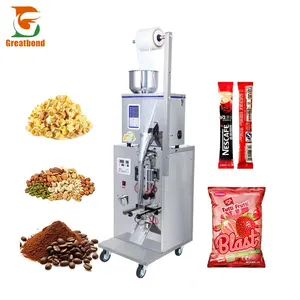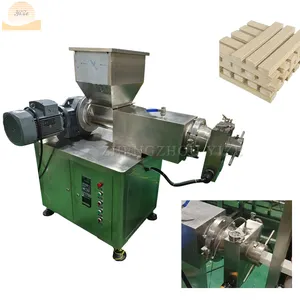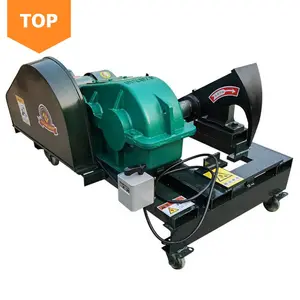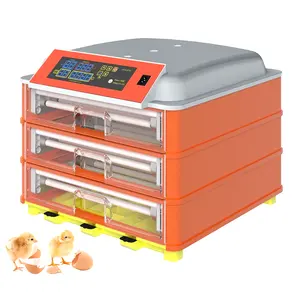Popular in your industry




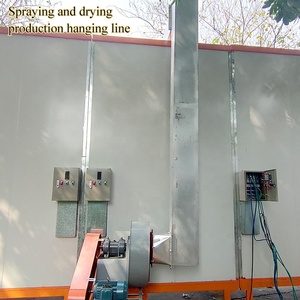






















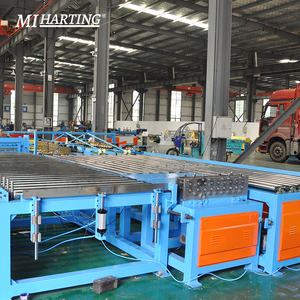


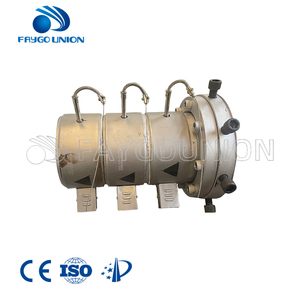









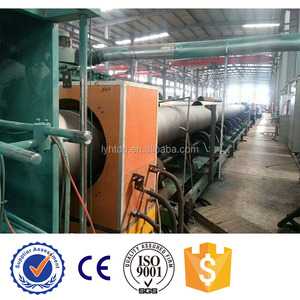
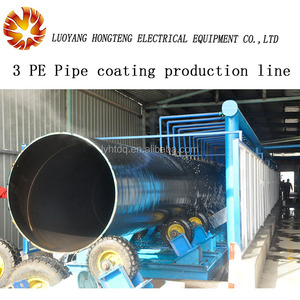

















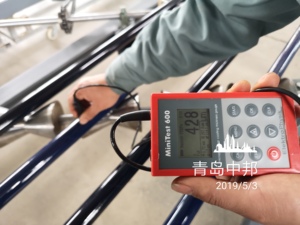




Top categories
About pipe coating production line
A pipe coating production line is a comprehensive and specialized equipment set designed to automate the process of applying protective coatings to pipes. It consists of various interconnected components and machinery, each serving a specific function in the internal coating of pipelines. The typical elements of a pipe coating production line include a pipe handling system, surface preparation equipment, a coating application unit, a curing chamber, and quality inspection mechanisms. These production lines are indispensable in industries that require pipelines with enhanced resistance to corrosion and wear, such as oil and gas, water distribution, and chemical processing.
The types of pipe coating production lines
There are several types of pipe coating production lines available in the market, each catering to specific coating applications and production requirements. Fusion-bonded epoxy (FBE) coating lines are commonly used for internal and external pipe coating, offering excellent corrosion protection. Internal pipe liners production lines specialize in applying liners within pipes, rehabilitating their interiors. For the external protection of pipes, three-layer polyethylene (3LPE) and three-layer polypropylene (3LPP) coating lines are preferred for their robustness. Meanwhile, cement mortar coating lines are commonly utilized in the water industry. Each type of pipe coating production line is designed with unique features and components tailored to its specific coating material and application method.
The working principles of pipe coating production lines
Before the coating application, pipes enter the production line through the pipe handling system, which may consist of rollers, conveyors, or other mechanisms for smooth transportation. Surface preparation equipment, such as abrasive blasting units and cleaning stations, is employed to remove contaminants and create an optimal surface for coating adhesion. The coating material, whether epoxy, polyethylene, or another type, is precisely applied to the pipe's internal or external surface using specialized methods, such as extrusion or spray coating. In the case of sewer pipe coating, the process is often conducted in a controlled environment to ensure uniform and complete coverage. Subsequently, the coated pipes pass through a curing chamber where the coating material is cured or solidified, enhancing its durability. Finally, the pipes undergo quality inspection through automated or manual means to verify coating thickness, adhesion, and overall quality. The continuous and automated nature of pipe coating production lines streamlines the manufacturing process, ensuring consistent and high-quality results.
The applications of pipe coating production lines
Pipe coating production lines find extensive applications across various industries, contributing to the longevity and performance of pipelines. In the oil and gas sector, these production lines are crucial for safeguarding pipelines against corrosion and extending their service life. Municipalities and water treatment facilities utilize pipe coating production lines to enhance the durability of water distribution networks, mitigating the risk of leaks and contamination. In the realm of infrastructure, such as construction and sewer systems, these production lines are instrumental in the rehabilitation and maintenance of pipelines, including the application of coatings for structural integrity. Moreover, the deployment of pipe coating production lines in chemical processing industries ensures the safe and efficient transport of corrosive substances. These production lines are also integral to the manufacturing of pre-coated pipes used in construction projects, offering a cost-effective and reliable solution for various applications.
